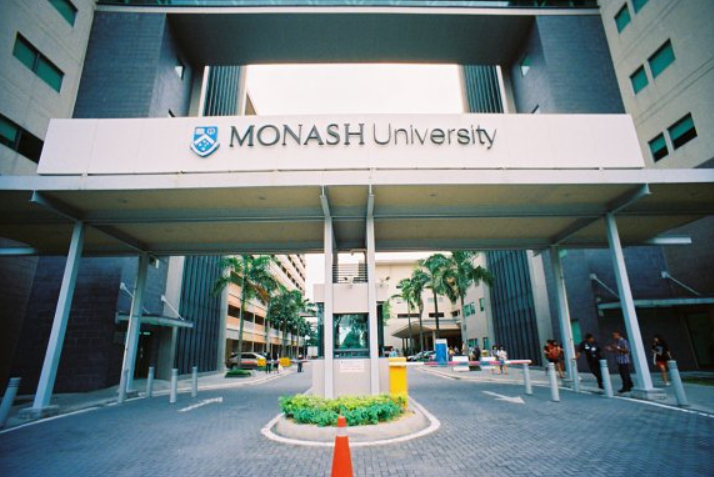Pursuing a Bachelor of Medicine and Bachelor of Surgery (MBBS) or a Medicine program in Malaysia has gained significant attention among international students. The Malaysian medical education system offers a blend of quality education, modern facilities, and diverse cultural experiences. This article aims to highlight the importance of studying MBBS or Medicine in Malaysia for international students, provide an overview of the Malaysian medical education system, and outline the benefits of choosing Malaysia as a destination for medical studies.
Importance of Pursuing MBBS or Medicine in Malaysia for International Students
- Quality Education: Malaysia is home to several reputable medical universities that offer high-quality education recognized internationally. These universities often employ experienced faculty members and maintain modern facilities to provide students with a comprehensive medical education.
- International Recognition: MBBS and Medicine programs offered by Malaysian universities are generally recognized by global medical councils and organizations. This recognition ensures that graduates have the opportunity to pursue further education, training, or practice medicine in various countries around the world.
- Cultural Diversity: Malaysia is known for its cultural diversity, making it an attractive destination for international students. Studying medicine in this multicultural environment allows students to interact with peers from different backgrounds, fostering cross-cultural understanding and communication skills.
- English-Medium Instruction: Most medical universities in Malaysia offer programs in English, which is a significant advantage for international students. Studying in English eliminates language barriers and ensures that students can fully engage with their studies and communicate effectively.
- Modern Facilities and Technology: Malaysian medical universities are equipped with state-of-the-art facilities, including well-equipped laboratories, advanced medical equipment, and simulation centers that provide hands-on training to students, ensuring they are well-prepared for clinical practice.
- Clinical Exposure: Malaysia provides a diverse patient population and a wide range of medical cases, offering students valuable clinical exposure. This exposure allows students to apply their theoretical knowledge in real-world medical settings, enhancing their clinical skills and medical decision-making abilities.
- Affordable Tuition Fees: Compared to many Western countries, the tuition fees for MBBS and Medicine programs in Malaysia are relatively affordable. This makes Malaysia an attractive option for students seeking quality education without the burden of exorbitant expenses.

Overview of the Malaysian Medical Education System
The Malaysian medical education system typically follows a structured curriculum that combines theoretical knowledge, practical training, and clinical exposure. The duration of the MBBS program is usually around 5-6 years, including pre-clinical and clinical phases. Students undergo rigorous training in basic sciences, clinical skills, and patient care. You can learn more about the Malaysian Education System here.
Benefits of Studying MBBS in Malaysia
- Global Career Opportunities: Graduates of Malaysian medical universities have the opportunity to work in various countries, as the degrees are recognized by medical councils worldwide.
- Practical Experience: The emphasis on clinical exposure ensures that students graduate with hands-on experience in various medical settings, making them well-prepared for their medical careers.
- Multicultural Competence: Interacting with a diverse patient population and student body enhances cultural sensitivity and communication skills, essential for effective medical practice.
- Affordable Living: Malaysia offers a relatively affordable cost of living compared to many Western countries, making it conducive for international students.
- Modern Healthcare System: Students can observe and learn from Malaysia’s advanced healthcare system, which combines traditional medicine with modern medical practices.
Admission Process for International Students

Entry Requirements and Eligibility Criteria
The specific entry requirements and eligibility criteria for MBBS and Medicine programs in Malaysia may vary slightly among universities. However, some common prerequisites include:
- Educational Background: Applicants should typically have completed their secondary education or equivalent with a strong focus on science subjects, including Biology, Chemistry, and Physics.
- Minimum Grades: Universities often require a minimum GPA or academic score in the relevant subjects. This requirement can vary from one institution to another.
- Entrance Exams: Some universities may require applicants to take standardized medical entrance exams, such as the UKCAT (UK Clinical Aptitude Test) or BMAT (BioMedical Admissions Test). These exams assess skills and abilities relevant to medical studies.
- Interviews: Many medical universities conduct interviews as part of the selection process. These interviews may assess candidates’ communication skills, motivation to pursue medicine, and ethical awareness.
Application Procedures and Deadlines
- Online Application: Most universities offer online application platforms where international students can submit their applications. Applicants should create an account on the university’s official admissions portal.
- Document Submission: Applicants will need to upload scanned copies of their academic transcripts, certificates, passport, passport-size photographs, entrance exam scores (if required), and any other relevant documents.
- Personal Statement: Some universities may require applicants to provide a personal statement explaining their motivation for studying medicine and their career aspirations.
- Application Fee: There is usually an application fee that applicants need to pay when submitting their application.
- Deadlines: Application deadlines can vary among universities and programs. It’s crucial to check the specific deadlines for each institution and program you are applying to. Early applications are generally recommended.
Language Proficiency Requirements
As most MBBS and Medicine programs in Malaysia are taught in English, international students are often required to demonstrate proficiency in the English language. Commonly accepted language proficiency tests include:
- IELTS (International English Language Testing System)
- TOEFL (Test of English as a Foreign Language)
- PTE Academic (Pearson Test of English Academic)
- Cambridge English Qualifications
Universities typically have minimum score requirements for these tests, and students should ensure they meet these requirements before applying.
Visa and Student Pass Application Process
Once admitted to a Malaysian medical university, international students need to apply for a student visa and a student pass to legally stay and study in Malaysia. Here’s a general overview of the process:
- Acceptance Letter: After receiving an acceptance letter from the university, students should follow the instructions provided for visa and student pass application.
- Online Application: Many universities guide students through the online application process for the student pass through the Education Malaysia Global Services (EMGS) system.
- Document Submission: Students will need to submit their acceptance letter, passport details, passport-sized photos, medical examination reports, and other required documents as specified by the university and immigration authorities.
- Visa Approval Letter: Once the application is processed and approved, students will receive a Visa Approval Letter (VAL) from the Malaysian Immigration Department.
- Arrival in Malaysia: Students should arrive in Malaysia before the student pass expiration date indicated on the VAL. Upon arrival, they will need to undergo a medical screening.
- Student Pass Endorsement: Within a specific time frame after arrival, students need to complete the student pass endorsement process at the Immigration Department in Malaysia.
Top Medical Universities in Malaysia for International Students
1. AIMST University, Malaysia:
- Comprehensive curriculum covering pre-clinical and clinical phases.
- Accredited by the Malaysian Medical Council (MMC).
- Qualified faculty with expertise in various medical disciplines.
- Modern facilities, laboratories, and simulation centers.
- Clinical training at affiliated hospitals and medical centers.
- Competitive tuition fees, scholarships available.
2. University Sains, Malaysia (USM):
- Strong emphasis on community-based and problem-based learning.
- Accredited by the Malaysian Qualifications Agency (MQA) and recognized by MMC.
- Experienced faculty members.
- Well-equipped labs, teaching hospitals, and research facilities.
- Clinical exposure at various hospitals and healthcare centers.
- Competitive tuition fees, scholarships offered.
3. Cyberjaya University, Malaysia:
- Curriculum integrating medical sciences and clinical practice.
- Accredited by MQA and recognized by MMC.
- Faculty of experienced educators and medical professionals.
- Modern labs, simulation centers, and medical libraries.
- Clinical experience through partnerships with hospitals and clinics.
- Various financial aid options, including scholarships.
4. Taylor’s University, Malaysia:
- Holistic education integrating clinical skills and professionalism.
- Accredited by MQA and MMC.
- Dedicated faculty including clinicians and researchers.
- Modern facilities, anatomy labs, clinical skills centers, and e-learning resources.
- Clinical rotations at affiliated hospitals and healthcare centers.
- Scholarships and financial assistance available.
5. University of Malaya:
- Emphasis on research and community engagement.
- Accredited by MQA and recognized by MMC.
- Faculty of experienced educators and researchers.
- Well-equipped labs, libraries, and research centers.
- Clinical exposure at teaching hospitals and medical institutions.
- Scholarships and financial aid opportunities provided.

6. Monash University, Malaysia:
- Problem-based learning following Monash School of Medicine’s curriculum.
- Accredited by MQA and MMC.
- Diverse faculty of medical professionals and researchers.
- Modern teaching, research facilities, simulation centers.
- Clinical training at partner hospitals.
- Scholarships and financial assistance offered.
7. University of Kuala Lumpur:
- Comprehensive medical program with hands-on training focus.
- Accredited by MQA and recognized by MMC.
- Faculty of experienced educators and clinicians.
- Modern labs, simulation centers, teaching hospitals.
- Access to clinical training opportunities.
- Various scholarships and financial support available.
8. Asian Metropolitan University:
- Integration of theoretical knowledge and practical skills.
- Accredited by MQA and recognized by MMC.
- Faculty includes medical professionals and educators.
- Modern facilities and laboratories.
- Clinical training in partnership with healthcare institutions.
- Scholarships and financial aid options provided.
9. Newcastle University, Malaysia:
- Global medical program with research and clinical skills emphasis.
- Accredited by MQA and recognized by MMC.
- Diverse faculty in the Faculty of Medicine and Health Sciences.
- Modern labs, clinical skills centers, research facilities.
- Clinical training at affiliated hospitals.
- Scholarships and financial support offered.
10. International Medical University, Malaysia:
- Comprehensive medical program with early clinical exposure.
- Accredited by MQA and recognized by MMC.
- Dedicated team of medical educators and professionals.
- State-of-the-art facilities, labs, clinical skills centers.
- Clinical experience through partnerships with hospitals and clinics.
- Various scholarships and financial assistance options available.
Cost of Studying and Scholarships
A. Tuition Fees for International Students:
Tuition fees for international students pursuing MBBS or Medicine programs in Malaysia can range from approximately USD 15,000 to USD 30,000 per year. This cost can vary based on the university, program duration, and whether the institution is public or private. It’s recommended to check the official websites of the universities for the most accurate and up-to-date tuition fee information.
B. Living Expenses and Accommodation Options:
Living expenses in Malaysia are relatively affordable compared to many other countries. On average, international students can expect to spend around USD 5,000 to USD 10,000 per year on living expenses. Accommodation options include on-campus dormitories, off-campus apartments, or shared housing. The cost of accommodation varies depending on location and type of housing.
C. Scholarships and Financial Aid Opportunities for International Students:
Many Malaysian universities offer scholarships and financial aid to international students, including those pursuing medical programs. Scholarships can be merit-based, need-based, or awarded based on other criteria such as leadership, community involvement, or country of origin. It’s important to research and apply for scholarships early, as deadlines and eligibility criteria may vary among universities.
Student Support Services
A. Orientation Programs for International Students:
Orientation programs provide essential information to help international students adapt to their new environment. These programs cover topics like campus facilities, academic requirements, immigration procedures, and cultural integration. They aim to ease the transition for new students and provide a sense of belonging.
B. Academic and Career Counseling:
Academic advisors offer guidance on course selection, academic progress, and degree requirements. Career counseling services assist students in exploring career paths, preparing for job interviews, and developing skills for professional success.
C. Student Organizations and Extracurricular Activities:
Student organizations and clubs offer opportunities for students to engage in a variety of extracurricular activities, ranging from sports and cultural events to academic and interest-based groups. These activities enhance personal growth, cultural understanding, and leadership skills.
D. Health Services and Student Well-Being Support:
Health services on campus provide medical care for students’ physical health needs. Counseling services offer emotional and psychological support to help students manage stress, anxiety, and other mental health concerns.
Licensing and Career Opportunities
A. Recognition of Malaysian MBBS Degree Internationally:
MBBS degrees from reputable Malaysian universities are generally recognized by medical councils and organizations in numerous countries. However, graduates may need to undergo additional assessments or exams depending on the destination country’s requirements.
B. Licensing and Registration Process for Graduates:
Graduates typically need to complete licensing and registration processes in the country where they intend to practice medicine. This often involves passing licensing exams, fulfilling clinical practice requirements, and submitting necessary documentation.
C. Post-Graduation Career Prospects and Job Opportunities:
Graduates can pursue various career paths, including becoming medical practitioners, specialists, researchers, educators, or healthcare administrators. Opportunities exist in hospitals, clinics, research institutions, and public health organizations, both domestically and internationally.
Remember that details and circumstances can change, so it’s essential to verify information directly from the universities and relevant authorities when making decisions about studying medicine in Malaysia.

How Can We Help?
We can be your valuable guide in navigating the intricacies of pursuing MBBS and Medicine programs in Malaysia as an international student. We offer expert insights into the application process, helping you select the right university, assisting with documentation, and ensuring you meet language and admission requirements.
FAQs
How do I apply for an MBBS program in Malaysia as an international student?
The application process varies by university but generally involves submitting an online application, academic transcripts, test scores (if required), and other supporting documents.
What are the deadlines for applying to MBBS programs in Malaysia?
Application deadlines differ among universities and programs. It’s essential to check each university’s official website for specific application deadlines.
What are the language proficiency requirements for international students?
Most universities require proof of English proficiency through tests like IELTS, TOEFL, PTE Academic, or Cambridge English Qualifications. Specific score requirements may vary.
What is the approximate cost of tuition for international students in MBBS programs?
Tuition fees for international students in MBBS programs can range from USD 15,000 to USD 30,000 per year, depending on the university and program.
Conclusion
In conclusion, pursuing an MBBS or Medicine program in Malaysia offers international students a unique and enriching educational experience. The Malaysian medical education system provides a solid foundation in medical sciences, clinical skills, and patient care. With modern facilities, qualified faculty, and a multicultural environment, Malaysia emerges as an attractive destination for aspiring medical professionals.




